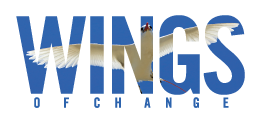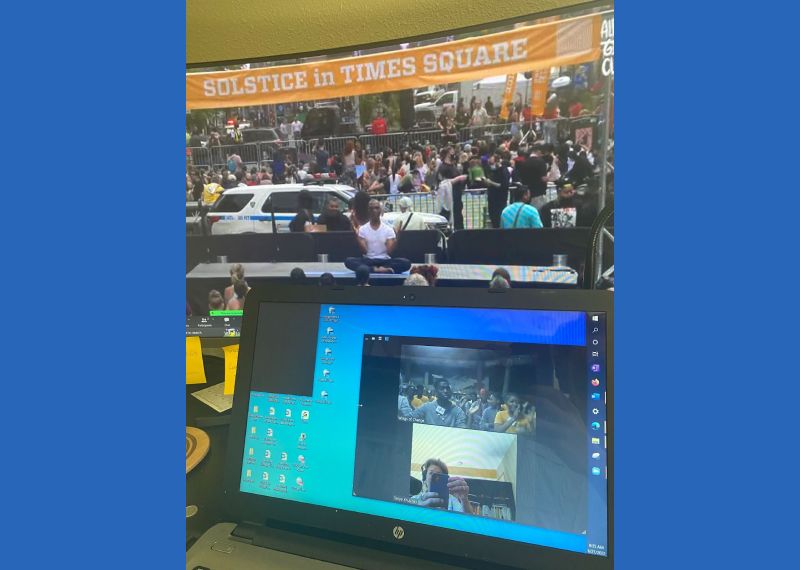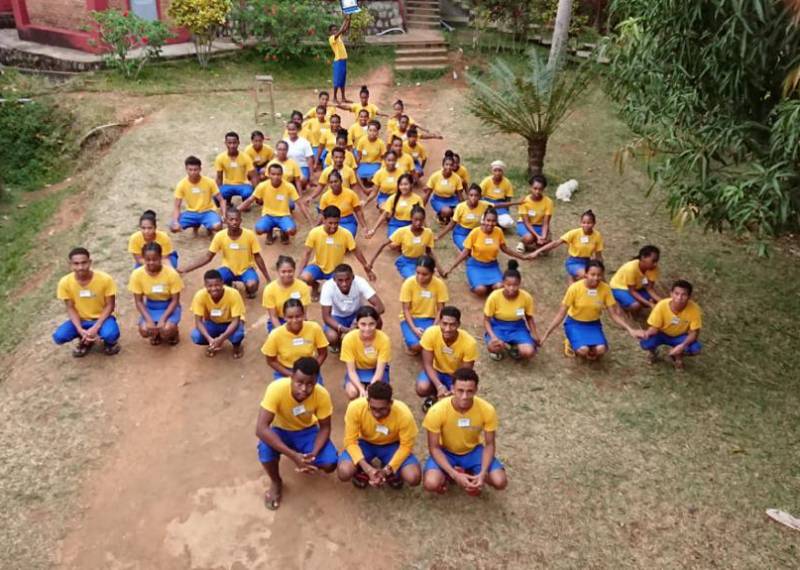
Article 3
March 31, 2023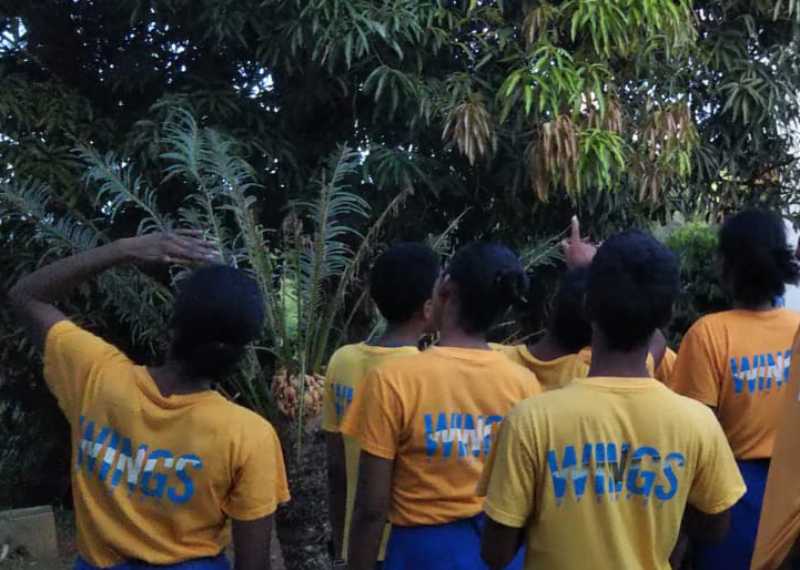
Article 5
May 19, 2023Class Notes on Creative Thinking Skills
‘Ask and you shall receive’, so they say.
What if how you ask matters?
Creative, Information and Judgment Questions
#creativityandeducation, #socialenterprise, #sustainability
If necessity is the mother of invention, curiosity is the wonder of her child.
Creativity is the language of possibility. It’s the new lingua franca you haven’t heard of. You can become more creative in many ways. Creative Thinking Skills, organized thinking and creative questions bring about curiosity and a creative mindset. Want to know how to speak this language of creativity?
Read on.
Creative questions = a creative mindset
Creative questions deliberately stimulate curiosity around what might be. They are exploratory by design. It is only in having lots of possiblity that the best, most outsanding idea can emerge.
Creative questions bring about infinite possibility. And why do options matter? Because the only way to have a great idea is to have lots of ideas.
But what if you just want a piece of information ?
What if you have to make a decision?
There are three types of questions and the problem you are trying to solve determines the type of question you will want to ask. It’s not so much what you ask, but how you ask it that determines the quality and type of answer.
Information questions = fact finding
Information questions provide factual information, data that we need in order to know something. The information will be finite, there is a sense of completion to the question. Most often there is really only one answer. You ask a question, you get the answer and that’s it.
“What time is room check-in at the hotel?” “3:00 p.m.” End.
Nothing more to say.
Information questions are perfect for gathering data and details. Information provides knowledge, context, orientation and basic capacity to function in life. After all, to do just about anything in life, knowledge is key. If you want to cook a meal, a recipe, knife skills and some type of cookware is required. To cook, you need some know-how.
Information may or may not be enough though. It might not be what you are after. “What’s for dinner?” “Pizza,” (infomational answer) is a different kind of a question than, “Do you want pizza or chicken for dinner?” “I like chicken more than pizza.” (decision) In this latter question, a decision is there for the taking, required actually to move forward and get the meal.
Judgment questions = yes or no
These ‘yes or no’ judgment questions depend on criteria, likes, needs etc. And decision questions have their place in the world too.
Here’s another example: “Is it worth staying in school or better to go to work?” This is an important, maybe even hard decision to make. Decision questions depend on some kind of value. Staying in school may be more important for a better future state. On the other hand, if money or the opportunity to work presents itself, the decision to put off school could make more sense. Decision questions are about determining what is more important, this or that.
Note: sometimes we make decisions without realizing it. Indecision is a form of decision making!
Creative questions redux = solid gold
Creative questions are not as much questions as they are statement starters. And statement starters are like gold nuggets: they invite us to wonder, explore how to crack them open and discover something we didn’t even know was there.
Let’s revisit the cooking analogy with creative questions. “What if I planned a meal?” “I wonder who might like to grab a bite with me?” “Where might be all the places I could eat?” “What are all the options for meals that are spicy, fast, inexpensive etc…?”
Next time you ask a question, pause and think about what type of answer you are after.
Is it information? Is it for decision making?
And what if there is an opportunity to wander, explore and think up something you never thought of?
That’s solid gold right there.
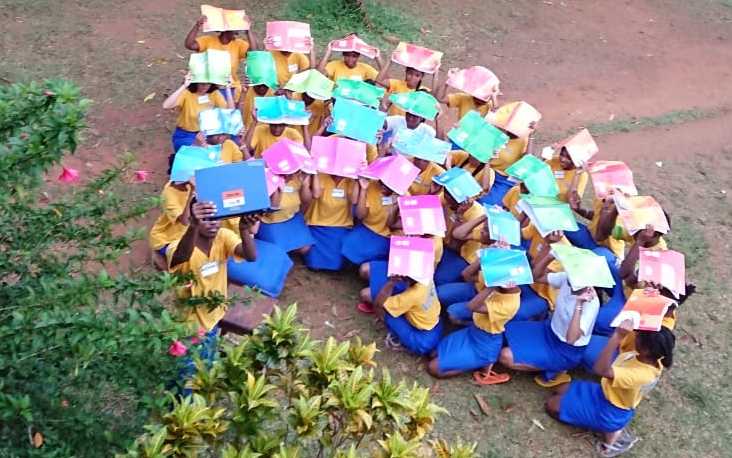
Wings of Change students make a rainbow with school books to represent creative questions.
Creative Question Examples…
”What if…?”
”How might…?”
”In what ways might…””
”What might be all the ways…?”
”What else, how else, who else…?
”What do you wonder?”
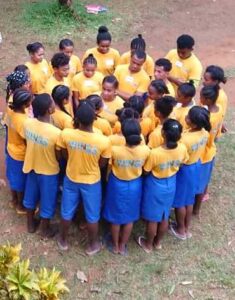
Information questions for fact finding
”What time is it?”
”Where is the restaurant?”
”Who is this?”
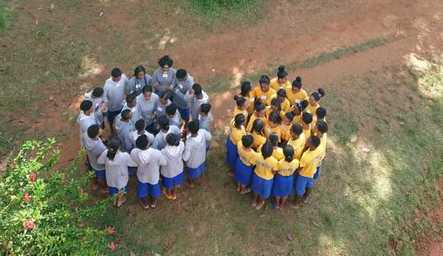
WoC students demonstrate decision questions
(this or that).
Judgment questions for decision making
”Should I study or go out?”
”Do I want to be the best that I can be?”
”Do you prefer/want this or that?”
______________________________
To ask the right question is already half the solution to the problem. -C.G. Jung
______________________________
Wings of Change is a vocational hospitality school and hotel social enterprise in Nose By, Madagascar. All blog post images are taken from Creativity Through English class where students physically represent abstract, critical thinking for learning.
Wings of Change students explore Creative Thinking Skills through living pictures, tableaux vivants, in order to resonate, collaborate and have fun while learning to deliberately develop the capacity to problem solve.

Tanya Knudsen is a doctoral candidate for creative leadership and teaches remotely for Wings of Change.
For more information on Creative Thinking Skills, Teaching for Creativity or Creative Problem Solving, email Tanya
For a deeper dive on creative questions and solid gold, check out an interview with Dr. Roger Firestien on The Idea Gym
Credits for this blog go to Dr. Firestien and the late Dr. Parnes.
###
